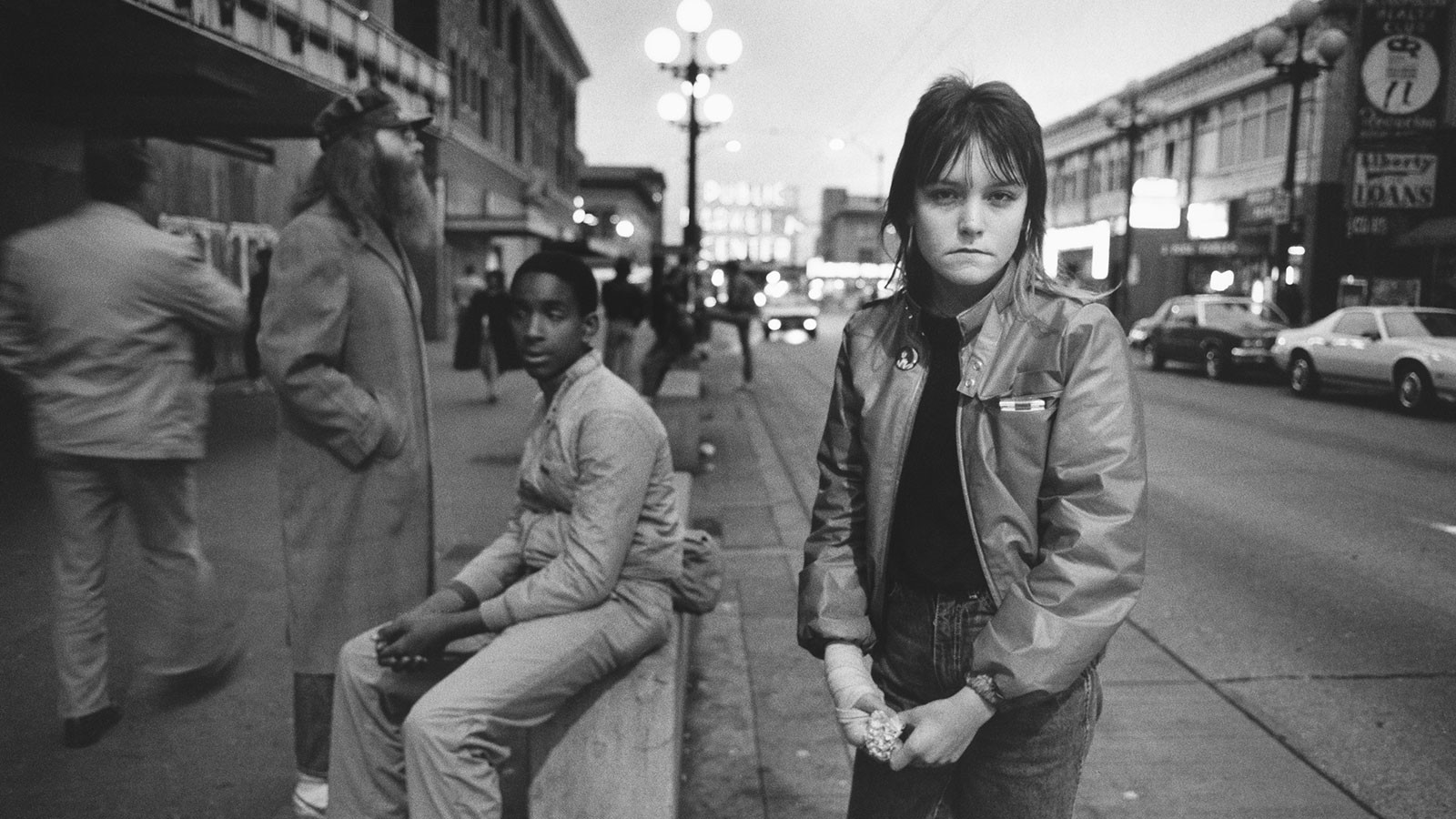
Our partner organization, Films from the Margin, operates to put on display a showcasing of films “from the margin,” often works that are difficult to find, lesser known, and considered hidden gems. From world famous filmmakers’ smaller, maybe earlier work to a surprising foreign marvel, Films from the Margin aspires to educate and inform viewers of cinematic treasures otherwise hidden by an immeasurable sea of content, while providing hours of gutsy, unique, unforgettable entertainment. This column will feature recommendations of films otherwise considered to be “from the margin,” as well as where one can locate them. For more information on Films from the Margin and how to get involved, drop us a line at filmsfromthemargin.ec@gmail.com.

Personal Problems (1980, Bill Gunn, United States)
Bill Gunn was certainly an underground filmmaker. A renaissance man, so to speak, he’s most famous for his stage work in New York City, but dabbled in play-and-screenwriting, as well. He directed just three films before his life was tragically cut short at 59. Personal Problems was his final piece in the medium. Originally planned as an experimental meta-soap opera, the film follows the life of Johnnie Mae Brown, a nurse who lives in Harlem. Like any soap opera, it is filled with melodrama, love triangles, and lots of shouting. Unlike most soaps, though, Personal Problems isn’t stifled by a rapid pace or hammy, over-the-top acting. Gunn’s insistence on improvisation gives the project an airy, dreamlike feel that slows the pace, and further allows the actors to naturally build off one another. This airiness also persists in the strong camerawork by Robert Polidori, gliding and zooming around the characters, capturing Gunn’s trademark vision of improvised, unplanned experiments. Shot entirely on VHS, Polidori’s remarkable compositions, combined with Gunn’s singularly identifiable direction, helps remind viewers that a good carpenter does not blame his tools (the camera being the tool in question). Because it was shot as a television soap opera, Personal Problems clocks in at around three hours; it is easy to divide into two parts. Baffling slog for some and peculiar artistry for others, this is a work of effortless, shocking beauty. –Max Besser, staff writer.
This film is available through streaming on the Criterion Channel, as well as on Mubi. Select Kanopy subscriptions show the film, as well. A blu-ray and DVD of Personal Problems is sold at Kino Lorber.

Streetwise (1984, Martin Bell, United States)
There’s no more sophisticated way to phrase it: I haven’t a clue why Streetwise is not widely hailed as a benchmark for the documentary genre. Streetwise, the wide-eyed view of the lives of a ragtag group of homeless youth in a rather bleak Seattle, oozes with an empathy, a compassion & a bonafide, genuine love for its subjects that I’ve, frankly, never quite previously witnessed in a work of nonfiction–hell, fiction, too. In July of 1983, writer Cheryl McCall and photojournalist Mary Ellen Mark (the wife of director Martin Bell) joined forces, travelling to Seattle to observe these young lives in a piece titled “Streets of the Lost: Runaway Kids Eke Out a Mean Life in Seattle” for Life Magazine. McCall and Mark’s piece — the goal of which being to reveal that the town titled “most livable city” actually holds just as much desperation and homelessness as any other — seized the attention of Bell, who convinced Mark that the subjects were more than worthy of their own film. The trio of intrepid storytellers returned to the lives of Rat, Dewayne, Lulu, Roberta, Patti, and, most prominently, Erin — AKA “Tiny,” a 14-year old sex worker who Bell returns to in the “where is she now?” follow-up, 2016’s Tiny: The Life of Erin Blackwell — to create a heavy, radically devastating motion picture unlike any before it. When Steve James’ triumph Hoop Dreams released in 1994, it was Ebert who wrote of that film: [Hoop Dreams] makes us think in new ways about the world around us. It gives us the impression of having touched life itself.” Ebert’s words, while surely effective for that film’s greatness, stick with me a little more regarding Streetwise. Martin Bell’s portrait is a one-of-a-kind, a documentary that will make you think of the world we inhabit in new ways. Streetwise recently achieved something of a resurgence, receiving the official Janus Films treatment in a stunning new restoration from 2019. It’s about time this wrenching American masterpiece nets the acclaim it deserves. (Did I mention the song Tom Waits contributed to the film’s end credits?) –Micah Levine, editor & staff writer.
Streetwise is only available on the Criterion Channel. It is unquestionably worth the price of a one-month subscription.

Unknown Pleasures (2002, Jia Zhangke, China)
The characters in Unknown Pleasures are constantly moving. Bin Bin (Zhao Weiwei) drives his motorbike aimlessly through the city of Datong. Qiao Qiao (Zhao Tao) tours with a song and dance troupe, followed at every stop by Bin Bin’s friend, Xiao Ji (Wu Qiong). Everyone is in motion, but are they going anywhere? The third film from Chinese master Jia Zhangke, Unknown Pleasures is a portrait of a generation disaffected. The film’s central trio all are searching for meaning in their lives — be it through pop culture, military service, or hedonistic thrills. No matter what the avenue, this search for answers yields little results, forcing the characters to confront the alienation brought upon by globalization and the technological age. Shot entirely with early digital technology, Jia Zhangke uses the medium to brilliant artistic effect, capturing the isolation of modernity through the very means which wrought it. In the film’s choppy frames and digital grain, he captures a practically documentarian sense of realism. A stylish, brilliantly conceived, and supremely acted film, Unknown Pleasures ranks among the best of Jia’s work, capturing not just it’s characters, but an entire nation, in transition. –Kenneth Cox, co-editor in chief.
Unknown Pleasures is streaming on the Criterion Channel. DVDs of Unknown Pleasures are rather rare, occasionally popping up on the Region-B Hometown Trilogy boxset, listed here on Amazon; watch out, as a region-free player will be needed for viewing.

Things to Come (2016, Mia Hansen-Løve, France)
What do you live for when the life that you’ve built fractures into two—no, three separate parts? And who do you live for? These are the questions middle-aged philosophy professor Nathalie (Isabelle Huppert) must ask herself when, after decades of marriage, her husband abruptly asks for a divorce. Just as this crisis (and its subsequent emotional weight) gets into gear, however, another awaits: her anxiously-attached mother, whom Nathalie spends much of her time caring for, passes away. With these two anchors suddenly gone from her life, Nathalie finds herself adrift, and without the sense of direction she previously thought she had. After decades of examining the lives of others, she must look just as closely at her own life and examine if what remains is truly worth it. Things to Come is wonderful mediation on the fluidity of life and the stability (or lack thereof) family provides, as well as despite how fervently you can explore life’s deepest questions, you will never fully understand the meaning, or reason, behind anything. Huppert gives a masterfully restrained performance as Nathalie, giving what many critics agree as one of her best roles to date, a feat given her already studded background. She is aided by the careful direction of Hansen-Løve, whose control over the film feels so seamless, it is as if we are observing something much more real. Naturally, Nathalie does not find a clear answer in her searching—rather, reasons to embrace life find her, as she makes attempts to grapple with this avalanche of change. Things to Come is a reminder that purpose reveals itself in the quieter moments of life, ones wherein you aren’t actively searching for it. It ends on an impressionistic Christmas morning, evoking the sense that with accepting your lack of control over what is to come in life, comes peace, too. –Natalie Michaud, editor & staff writer.
This film is available to stream on Hulu and the Criterion Channel, and can be rented or purchased on most major streaming platforms. A DVD is available at Barnes & Noble.

Yentl (1983, Barbra Streisand, United States)
I’m recommending Yentl today not because you haven’t heard of Yentl. Because you’ve heard of Yentl. But what you may not have heard is that Yentl is actually good—like, really good. For many of us artist-cum-Jews out there, Barbra Streisand (Babs for short) occupies a sacred space in our hearts, the sort of uber-successful Jew who won over WASP America without giving up an ounce of her originality. She is beautiful yet unorthodox. She is phenomenally talented yet not afraid to come across as goofy. She is confident yet unabashedly neurotic. She also owns and runs a mini-mall in her basement that only she can shop in. She is all that we aspire to be. And yet, despite the recognition she has received for her singing and acting talents, many frequently gloss over her career as a filmmaker. As a director, Streisand soars, lending her projects both emotional clarity and sumptuously remarkable Old-Hollywood craft. Yentl is romantic, affecting, staunchly feminist, timeless, and all the other things you want a Barbra Streisand musical to be. Don’t be fooled by misogynistic and heteronormative cinephiles who write this sort of thing off as “fluff”: Streisand’s epic is a staple of American cinema for a reason, and undoubtedly a high-water mark of the 1980s studio system. –Matt Pifko, co-editor in chief.
Yentl is available through streaming on Criterion Channel, where there is also a newly recorded interview with Streisand on the success of her oeuvre. It can also be found streaming on Hoopla, and through TCM. Yentl is also available for rent/purchase on most major streaming platforms. A DVD is not hard to track down.

The Land (1969, Youssef Chahine, Egypt)
Egyptian master Youssef Chahine’s work on The Land is best classified as Hollywood with a conscience. Adapted from Abdel Rahman Al-Sharqawi’s novel of the same name, The Land is a magnificently photographed epic told with the astute intimacy of a Spike Lee joint. Chahine, with co-writer Abderrahman Charkawi, documents a relatively straightforward story about a peasant village’s on-going struggle for solidarity against governmental oppression. Fortunately, The Land’s social-realism doesn’t take a nosedive into exasperating didacticism or empathetic pity. The script’s communitarian approach allows for Chahine to sympathetically (and systematically) emphasize each individual character’s relationship to the community-at-large; by slowly unveiling the participant’s inner-conflicts, Chahine’s humanist lens manifests a unique situation where solidarity is not always guaranteed. He is supported in this endeavor by an all-time-best cast of key Egyptian character actors, such as Hamdy Ahmed (Cairo 30), Yehia Chahine (Cairo Trilogy), and Ezzat El Alaili (Alexandria…Why?). An exercise in both formal style—I wish to note a stunning Abel Gance-style closing shot, which, literally, took my breath away—and vigorous narrative movement, The Land is an unforgettable foray in the historiography of Egyptian cinema. –Aaron Homem, staff writer.
This film is streaming on Netflix. International home media distributor Trigon Films offers a DVD of The Land, but watch out, as a region-free player will be needed for viewing.

Iguana (1988, Monte Hellman, United States)
Stranded island tales examine a rift from society and the madness such isolation instills in their castaways. Monte Hellman’s little-known Iguana basks in its loneliness, starring a pariah named Oberlus as he deserts his post aboard a whaling ship to settle an uninhabited island. The place is as rocky and unforgiving as his visage, hardened by years of social exclusion and the salt spitting sea. His stranded state is liberating of the standards crewmates have confined him to, empowering his declared war on humanity as he enslaves those who wash ashore his newfound kingdom. Oberlus goes so far as to hunt and, in a few cases, kill his slaves to let loose his adopted victimhood, one which he cannot escape in the eyes of his own newborn. Iguana serves as a testament to the harsh reality of creation, those omitted from both the old and new. –Eoin Varden, staff writer.
Iguana is streaming on Amazon Prime, where it is also available for rent/purchase. A rough search for an out-of-print DVD on eBay may yield results.